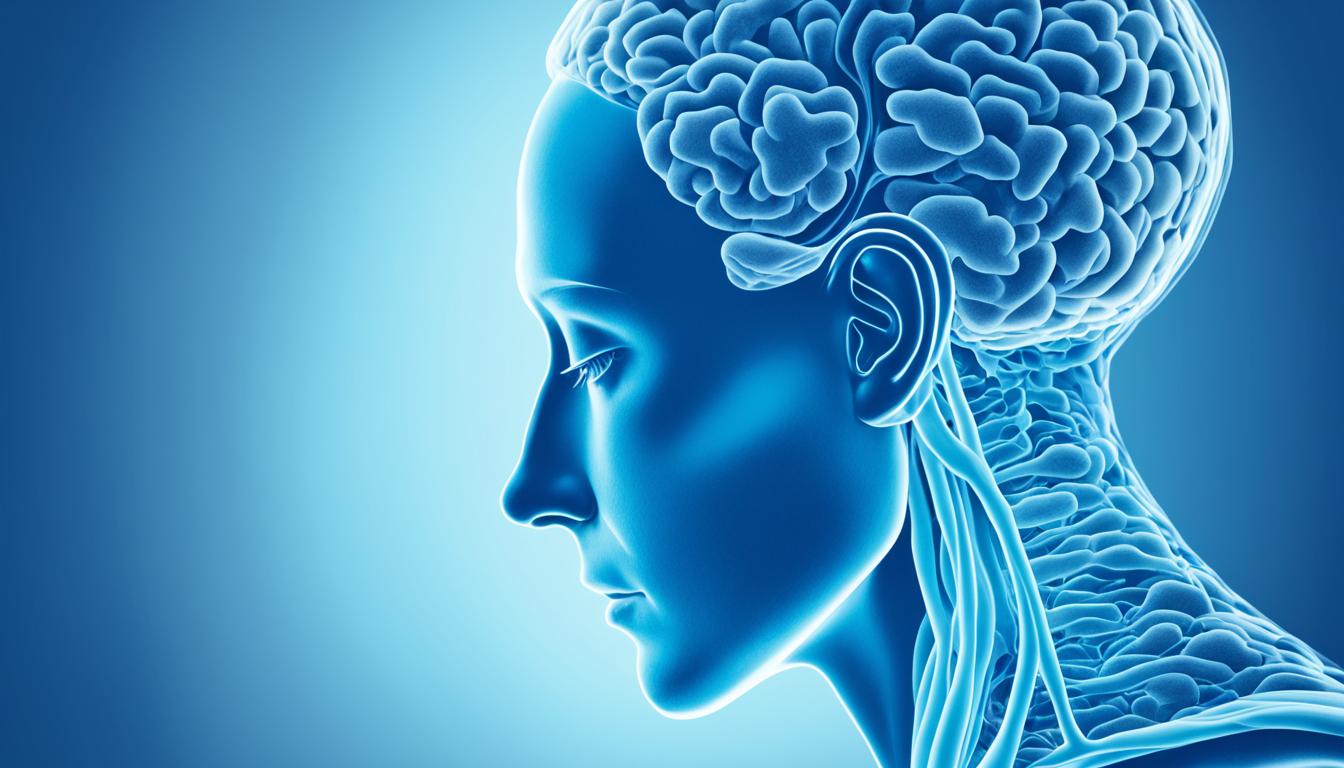Hashimoto’s disease is a common issue with the thyroid, mainly seen in women. It leads to the most common type of an underactive thyroid in developed areas. This condition starts when the body’s defense system attacks the thyroid.
Hashimoto’s thyroiditis brings many troubles. These include gaining weight, feeling tired, having hard bowel movements, being sad, losing hair, and having changes in menstruation.
Doctors often use blood tests to check for this disease. They look at the hormones in your thyroid and for specific antibodies. The usual way to deal with it is by taking man-made hormones. But, some are studying if stem cells can help too.
Key Takeaways:
- Hashimoto’s disease is an autoimmune thyroid disorder that affects women mainly.
- Symptoms include gaining weight, feeling tired, having hard bowel movements, being sad, losing hair, and having changes in menstruation.
- Diagnosing involves blood tests to check hormones in the thyroid and for antibodies.
- Hormone replacement is the main treatment, but studying stem cell therapy is offering hope as a different option.
- Stem cell therapy’s hope lies in reducing the attack on the thyroid, helping repair tissues, and boosting thyroid health.
Causes and Symptoms of Hashimoto’s Disease
Hashimoto’s disease affects the thyroid gland. It’s an autoimmune disease. This means the body’s immune system mistakenly attacks healthy cells. Gene issues and abnormal immune activity are linked to its cause.
Family history of thyroid or autoimmune diseases increases the risk of Hashimoto’s. So does having other autoimmune disorders. This shows how genes and immune problems can lead to the disease.
It often causes a goiter, which is a large thyroid gland. The problem starts when the immune system attacks the thyroid. This attack makes the thyroid get bigger.
Hashimoto’s disease mainly causes an underactive thyroid, or hypothyroidism. People might feel very tired, gain weight, or have trouble with their digestion. It can also make them feel depressed or lose hair.
- Fatigue: A persistent feeling of tiredness and lack of energy.
- Weight gain: Unexplained weight gain or difficulty losing weight.
- Constipation: Infrequent bowel movements or difficulty passing stool.
- Depression: Persistent feelings of sadness, hopelessness, or loss of interest.
- Hair loss: Thinning or loss of hair on the scalp or other body parts.
Sometimes, the thyroid works too much. This leads to symptoms of an overactive thyroid. People might lose weight, have a fast heartbeat, sweat a lot, or feel very anxious.
- Increased heart rate: A rapid or irregular heartbeat.
- Weight loss: Unexplained weight loss or difficulty gaining weight.
- Sweating: Excessive sweating, even in cool temperatures.
- Anxiety: Feelings of excessive worry, fear, or unease.
Symptoms can vary widely. Some people might barely notice them. Others could have severe problems. If you’re feeling anything unusual, see your healthcare provider for a check-up.
Diagnosis and Treatment of Hashimoto’s Disease
Diagnosing Hashimoto’s disease usually starts with blood tests. These tests check several things. They mainly look at the thyroid-stimulating hormone (TSH) levels. This helps see how well the thyroid is working. Doctors also check for antithyroid antibodies and thyroid hormones. This helps confirm if it’s autoimmune thyroiditis. All these tests are key to spotting Hashimoto’s disease.
For treatment, hormone replacement therapy is often used. This therapy means giving synthetic thyroid hormones. The goal is to get the body’s thyroid hormone levels back to normal. It’s a helpful way to ease symptoms and improve how someone feels. Yet, other treatments like stem cell therapy are being looked into.
Stem cells, especially mesenchymal ones, show promise in treating Hashimoto’s. They can lower inflammation, help new tissue grow, and adjust the immune system. Early studies suggest benefits for thyroid health and symptom relief. But, more research is needed to understand the full effect and ensure its safety.

